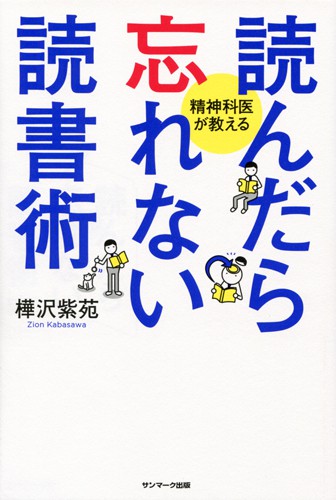


ISBN978-4-7631-3450-9
251 pages / April 2015 / 1,500 yen (w/o tax)
Be able to memorize what you read!
What useful reading techniques are supported by neuroscience?
“I immediately forget the contents of the books I read.”
“Things don’t stick in my memory, regardless of how closely I read them.”
“Even though I found it really interesting, after a short time I can no longer remember it.”
Does this sound familiar?
Like leaving the tap running, not retaining what you’ve read is a waste.
In order to find meaning in what you’ve read, it’s important to try relating the information presented to you to your personal experiences and growth. This will, in turn, make the information more difficult to forget.
The author, also a psychiatrist, presents “techniques for reading without forgetting” which are backed by the world of neuroscience. He also shares his knowledge as an “SNS (social networking service) super pro” and social media expert to shed light on ways to share acquired knowledge with others and to put to use information gained from reading. Use these “techniques for reading without forgetting” to implement knowledge gained from books into your work and everyday life. Please read this book as a continuation of Techniques for Remembering What You Read.
Chapter 1: Why Is Reading Important? 8 Things You Gain from Reading
Chapter 2: Read Without Forgetting — A Psychiatrist’s 3 Basic Techniques
Chapter 3: Read Without Forgetting — A Psychiatrist’s 2 Key Points
Chapter 4: Read Without Forgetting — A Psychiatrist’s Tips for Implementing Knowledge
Chapter 5: Read Without Forgetting — A Psychiatrist’s Techniques for Choosing Books
Chapter 6: Extreme Technique for Reading Numerous E-books Quickly and Cheaply
Chapter 7: Read Without Forgetting — How a Psychiatrist Buys Books
Chapter 8: 31 Book Recommendations
In all three books of his that I’ve worked on, Kabasawa has written from the standpoints of an “SNS super pro.” This time, his approach was more psychiatric in nature; he writes about “techniques for reading without forgetting” backed by the fields of neuroscience and psychology. This resulted in a fresh experience through the editing process.
Read this book, and you may be surprised by what new methods of reading you discover.
